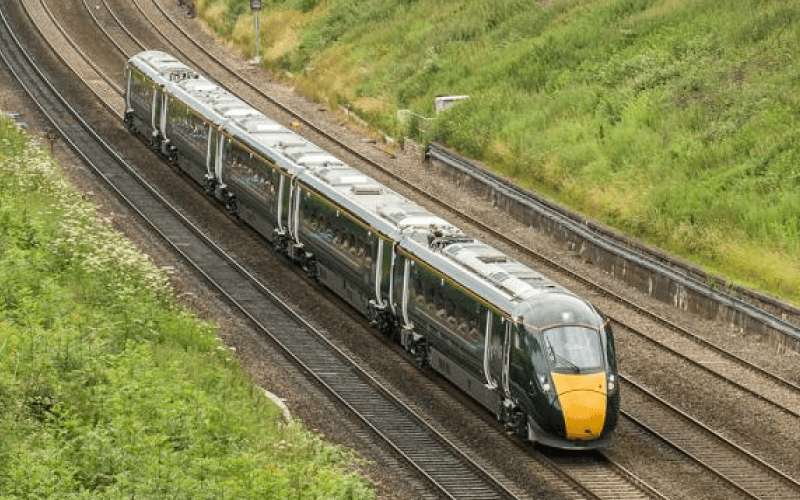The rail industry is breaching its duties under the Equality Act by failing to ensure that vital buttons and other fixtures and fittings on different trains are always positioned in the same location, say disabled trade unionists.
Union members called on the Department for Transport (DfT) to ensure that rail companies standardise the positioning of key features on their trains, such as buttons and levers on external and internal doors and door-locking levers on toilet doors.
Their failing design policies are acting as a “major barrier” to promoting independent travel for disabled passengers, they said.
Delegates at the TUC’s annual Disabled Workers’ Conference in Bournemouth said DfT needed to ensure that its procurement policies led to a standard approach to design across the whole rail network.
They also expressed their “disgust” that Great Western Railway (GWR) had been allowed to introduce inaccessible new class 800 intercity express carriages built by Hitachi (pictured).
Delegates also backed an amendment from the RMT union that supported the need for a guard on every train, and adequately staffed stations.
John Haynes, from the TSSA transport union, said standardisation would “give people confidence” to know where to find buttons, levers and how to open doors.
He said: “Accessibility is not just about getting on and off, it’s about having the confidence to travel, to take away the barriers, to give people the right to independence.”
He said the new GWR trains only had two accessible toilets, one of them in first class, with the other in a standard class carriage that had no spaces for wheelchair-users.
He said: “That is disgraceful in this day and age. Questions need to be asked: how did that design come about?
“This motion condemns those people who allowed that train to come into service.”
He said this was “a step back 40 years” and was “a disgrace” because wheelchair-users would be forced to travel in the vestibule at the end of the carriage if they wanted access to the accessible toilet.
Andy Worth, from Unite, also called for standardised access on all trains, both new and old.
He said: “For too many years, the trains we use have had different provision and facilities.
“This makes it very difficult and confusing for disabled passengers to have a comfortable journey.
“We have been campaigning for standardised access for a long time.
“Disabled passengers can get on a train with buttons on the right-hand side and get on another one with buttons on the left-hand side.
“We need to continue to make this demand for standardised access across all trains and across all stations.
“We need to campaign to make sure DfT makes it a mandatory requirement that all rail stock and stations have standardised access provisions and facilities, including all fixtures and fittings.”
Emily Brothers, from the GMB union, said the rail industry had successfully lobbied in the 1990s for a lengthy implementation period for rail access regulations, as part of the introduction of the Disability Discrimination Act.
She said: “Twenty-odd years later they are still procrastinating and not bringing in carriages, rolling stock that are standardised or accessible, as we have seen with Great Western and Hitachi. That is not acceptable.
“It is time for disabled people to be able to freely travel when they need to, to have the support of guards on all trains, to have a way in which they can find access on the train but also to get off the train on any station and get onto another or access the local environment.”
A note from the editor:
Please consider making a voluntary financial contribution to support the work of DNS and allow it to continue producing independent, carefully-researched news stories that focus on the lives and rights of disabled people and their user-led organisations.
Please do not contribute if you cannot afford to do so, and please note that DNS is not a charity. It is run and owned by disabled journalist John Pring and has been from its launch in April 2009.
Thank you for anything you can do to support the work of DNS…

 Angry response from campaigners as rail minister seeks to reassure MPs about government’s access plans
Angry response from campaigners as rail minister seeks to reassure MPs about government’s access plans Lords is ‘aeons ahead’ of Commons on access, disabled MP tells colleagues
Lords is ‘aeons ahead’ of Commons on access, disabled MP tells colleagues Online provider charges disabled students thousands more for same qualification in ‘blatant discrimination’
Online provider charges disabled students thousands more for same qualification in ‘blatant discrimination’